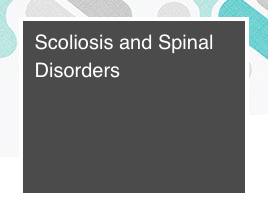 After researchers failed to seek ethics approval for a study on teens with scoliosis, a journal has issued an erratum to the paper.
After researchers failed to seek ethics approval for a study on teens with scoliosis, a journal has issued an erratum to the paper.
The journal is not retracting the paper outright, it says, because the study was non-invasive and likely would have received ethics approval.
During the study, teenagers with and without progressive scoliosis underwent a physical examination and participated in an interview along with a parent, with the goal of trying to uncover risk factors for the condition.
Here’s the full erratum from Scoliosis and Spinal Disorders for “Physical activities of Patients with adolescent idiopathic scoliosis (AIS): preliminary longitudinal case–control study historical evaluation of possible risk factors:”
The ethics statement in this article [1] incorrectly states that the study was undertaken before ethics approval was required for such research. Contrary to this statement, South East Scotland Research Ethics Service has confirmed that an NHS ethics committee was in existence at the time of the study during the 1990s and that ethics approval would have been required for the NHS aspects of this study. South East Scotland Research Ethics Service has advised that the study would most likely have been given a favourable opinion if submitted for ethics approval but are unable to give retrospective approval. Given the time when the study was conducted, the non-invasive nature of the study, the opinion of the South East Scotland Research Ethics Committee and the potential public health implications of the findings, the Editor and Publisher have decided to take no further action.
In addition, there is an error in the reference list of this article [1]. The article cited as reference 19 should have been included in the reference list between references 3 and 4.
The first paragraph of the introduction section should include a citation to the article listed as reference 19 to read:
This paper reports a preliminary longitudinal study of the physical activities of children obtained historically for Patients with progressive adolescent idiopathic scoliosis (AIS) and Controls. For reasons given in Appendix I, this text describing the research is a full account of that previously presented [1–3, 19].
Appendix I should read:
This paper provides a full account of that published privately in abridged form with one Table by the International Research Society of Spinal Deformities meeting at the University of British Columbia, Canada in 2004 [1]. The research led to a further publication by the writer [19].
Indeed, the original “ethics” section of the paper read:
This study was undertaken before ethics approval was required for such research and was prosecuted in accordance with the Helsinki Declaration.
We contacted first author Marianne E McMaster, affiliated with the Royal Hospital for Sick Children, who told us it took so long to publish a study from the 1990’s because it was initially included in a book, which they had hoped would become available online. When that didn’t happen, and McMaster began building on the results in other research, she and her colleagues submitted it to Scoliosis to make the data available online.
McMaster told us:
Our paper has not been retracted. It simply needs an insertion regarding ethical approval, which the committee has said would have most likely been given had the research proposed been submitted for ethical approval.
The researchers found that certain childhood activities were positively associated with adolescent idiopathic scoliosis (AIS), and others negatively so, according to the abstract:
Statistical analyses showed progressive AIS to be positively associated with social deprivation, early introduction to indoor heated swimming pools and ability to toe touch. AIS is negatively associated with participation in dance, skating, gymnastics or karate and football or hockey classes, which might suggest preventive possibilities.
The 2015 study has not been cited, according to Thomson Reuters Web of Science.
We’ve reported on numerous retractions of studies that did not have proper approval. Some cases are more clear-cut, so to speak, such as the paper on a surgery to repair defects in patients’s hearts, pulled from The European Journal of Cardio-thoracic Surgery. That study not only failed to have approval, but the retraction note revealed that, years earlier, the local cardiac surgery society had asked the first author to “abandon this method of surgery.”
Other studies pulled for lack of approval didn’t involve the same potential for physical harm as the cardiac surgery study. A paper based on interviews with overweight people about depression was retracted for that reason, even though there was “no implication that the data collection was carried out unethically.” However, in that case, the authors claimed to have the approval they needed.
Like Retraction Watch? Consider making a tax-deductible contribution to support our growth. You can also follow us on Twitter, like us on Facebook, add us to your RSS reader, sign up on our homepage for an email every time there’s a new post, or subscribe to our new daily digest. Click here to review our Comments Policy.
This is similar to the NEJM/Resident working hours thing and troubling.
http://enewspf.com/2016/02/02/new-england-journal-of-medicine-violates-its-own-policy-publishes-results-of-unethical-clinical-trial-that-put-resident-doctors-at-risk/
Specifically, Scoliosis and Spinal Disorders has made decisions (ethics and risk) that are the purview of an IRB.
And the SUPPORT trial and this trial on hypothermia in kidney transplantation w/o informed consent: http://www.nejm.org/doi/full/10.1056/NEJMoa1501969#t=article
The Methods section on IRB determinations is bizarre. If the trial (actually) met the definition of minimal risk what is the purpose of the DSMB? To watch over the welfare of the deceased donors?
Scoliosis study: needs explanation of how authors came to wrong conclusion wrt to need for ethical review.